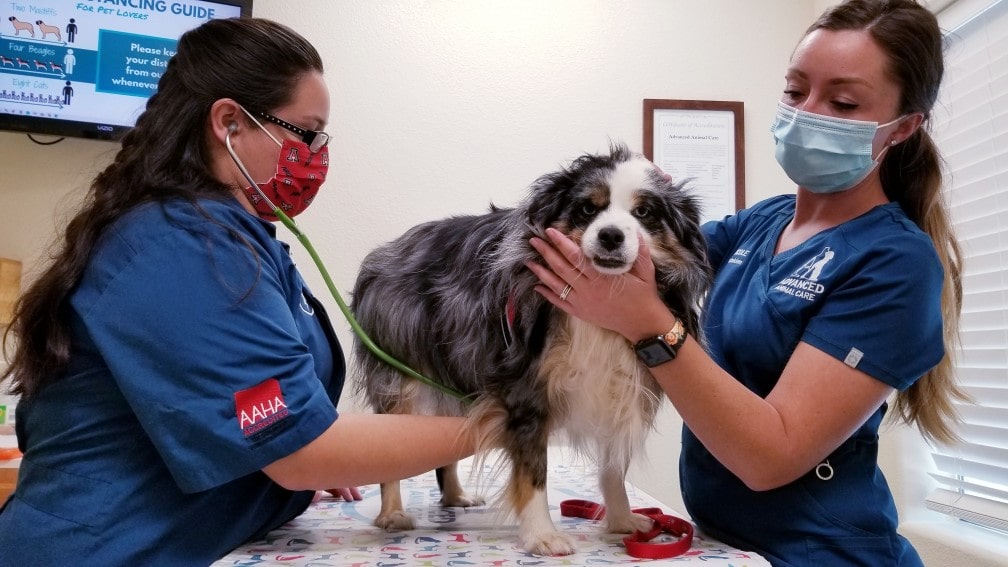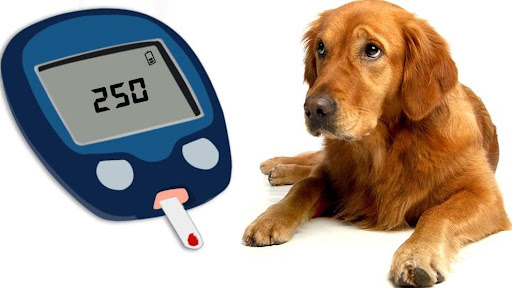Strong, sporadic, persistent coughing in canines can be a sign of heartworm infestation. If the persistent and dry coughing is accompanied by difficulty in breathing, lethargy, and weight loss, and you notice bulging ribs in your pet, it is something you should not ignore. Heartworm prevention is a significant part of the preventive care you need to take off your dog.
If heartworms infect a dog, it can cause several health complications. In severe situations, it can even cause death – it can shorten its lifespan! So, heartworm prevention is something that you can never overlook.
However, you need not worry; we are here to educate you about them and ensure you can prevent them in your dogs. Outdoor playtime is beneficial for dogs, but it also increases the risk of exposure to heartworms for dogs.
What is heartworm disease in dogs?
Blood-borne parasitic nematodes or roundworms cause heartworm disease. Also referred to as “Dirofilaria immitis,” mosquitoes transmit it to dogs’ bodies. It can be in their blood vessels, lungs, and heart. Hence, it can threaten health and well-being According to estimation, at least 30 species of mosquitoes are detected as transmitters of heartworm disease.
Mosquitoes ingest the immature larvae of the heartworms, known as microfilariae, and they do so by feeding on infected dogs and cats. These microfilariae develop in the guts of those mosquitoes for 10-30 days. They enter parts of the mosquitoes’ mouths.
The symptoms of heartworm disease in dogs
The symptoms of heartworm disease in dogs have four stages. In the first stage, there would be no symptoms of the infection. At this stage, the heartworms are there in their body and just settling in. However, at this stage, they are yet to progress to the point where they would have produced a new generation of microfilariae. The infected dog body also would not have produced enough antigens to detect the problem.
In the second stage, it varies between no symptoms to moderate symptoms, including a more lingering cough and an intolerance to exercise. At this stage, the heartworms have been there long enough in their bodies to produce antibodies and probably produce microfilariae on their own. At this stage, heartworm disease can be detected through blood tests.
By the third stage, the symptoms of this disease become rather evident and impact your buddy’s health. During this period, the dog would feel fatigued following any exercise. They may be reluctant to exercise. They would also experience difficulty in breathing.
During this period, they may cough up blood as well. At this stage, the disease would be rather evident through x-rays. The worms in the large and heart vessels would be rather evident.
In the fourth stage, the symptoms are visible, accompanied by long-term implications for your pet’s health. They would be extremely ill. The symptoms would be the same as in the previous stage but magnified in severity.
Your dog would be reluctant to exercise and get tired after doing so. They would cough a lot too. It is also possible that they would have trouble breathing. Tests would reveal the extent of the disease’s impact on them.
However, even if a dog gets treatment at this stage, there is always a high risk of them being debilitated for a long time and possibly dying too!
Read Also: CBD Dog Treat for Anxiety: Is CBD Safe for Dogs?
How to prevent heartworm in dogs?
The best way to prevent heartworm is a long-acting injection or a chewable they eat once a month. Most dogs readily accept chewable as treats. You need to ensure that you administer the chewable every month on the same day each month to ensure your baby is sufficiently protected.
Chewable medicines have side effects, but they are rare. However, as is the case with any medicine, please consult the vet if you notice any change in the behavior or health of your dog.
The most recommended preventions for heartworms and intestinal infections in dogs
Interceptor Plus is useful for preventing heartworm disease and can control and treat infections caused by adult hookworms, roundworms, whipworms, and tapeworms in pups and dogs who are heavier than two pounds and older than six weeks.
PROHEART is an injection that prevents heartworm disease. You need to use PROHEART 6 for dogs six months or older – this needs to be followed twice a year. In the case of dogs who are older than 12 months, you need to use PROHEART 12 once a year.
What you should know about heartworm treatments?
The first step to treating such a disease is diagnosing the current condition. Most veterinarians use various tests to determine whether heartworms are present in dogs. The initial step is to get a blood test done. The first step in this diagnosis is a positive heartworm blood test.
If the report comes back positive, the doctors perform some other tests to determine the severity of the disease and the stage it is at. It helps them determine the most appropriate course of treatment to help the dog recover.
They perform a urinalysis, where they test the urine of the affected canine. An antigen test is followed to determine if adult female heartworms are present in the dog’s system. They perform radiographs or x-rays to see the shape and size of the dog’s heart.
It helps because most dogs with heartworms develop obstructions in the arteries that lead to the lungs or bigger pulmonary arteries. An ultrasound helps doctors directly see the internal structures of the heart and the vessels surrounding it. It assists in assessing the functioning and condition of the heart.
In the initial stage of the treatment, your dog would be hospitalized. So, adulticide can be performed – this medication kills adult heartworms. For baby heartworms, you need to administer monthly protection at home.
If the case is more severe, your dog may have to be hospitalized for an extended period, even as doctors administer heartworm treatments. In some extreme cases, doctors may also have to perform surgery to remove adult worms from the pulmonary artery and the right heart through the jugular vein.
This procedure is evident when several adult worms have infested a dog’s body. Some other symptoms, in this case, are as follows:
- anemia
- high blood pressure
- fainting spells
- rapid heartbeat
- chronic right-sided heart failure
Read Also: Do Dogs Need Protein-Rich Food?
Talk to the doctor for heartworm medicines for dogs
Consult your vet or doctor when making preventive care decisions for your dog. There is a wide range of reasons why this is true. The market is full of over-the-counter products that can be either ineffective or dangerous for your pet’s health.
Vets are qualified and trained to help you make the best decisions about preventive treatment and care for any health condition your baby may develop, especially concerning parasitic infections.
FAQs
Q: What are the first signs of heartworms in dogs?
The five warning signs of heartworms in dogs are persistent cough, lethargy, weight loss, difficulty breathing, and bulging ribs. The cough here is different. It is dry and persistent.
Q: Can you cure heartworm in dogs?
You do not want to hear that your dog is suffering from a heartworm infection, but the good thing is that most dogs with this disease can get the necessary treatments and eventually get cured with time.
Q: How long may a dog live with heartworms?
In some rare cases, doctors prefer to treat organ damage rather than risk killing the parasites because of the associated side effects. In such cases, the dog may not survive even for a few months.
Q: What happens if a dog has heartworms for a long time?
If heartworm infection in dogs is left untreated at the right time, it worsens and damages their heart, liver, lungs, and kidney, eventually killing them.
Q: Can you touch a dog with heartworm disease?
Both humans and dogs may have heartworm infections, but dogs cannot give it to humans through their body fluids. This disease gets transmitted through mosquito bites in both species.
Conclusion
The thing with heartworm is that it is preventable with ease. If you are not using any heartworm prevention medication recommended by your vet, you should consult them. Since prevention is simple, there is no reason your dog should be exposed to such a disease.

 DogExpress
DogExpress





















 in Chandigarh, India.
in Chandigarh, India. 
